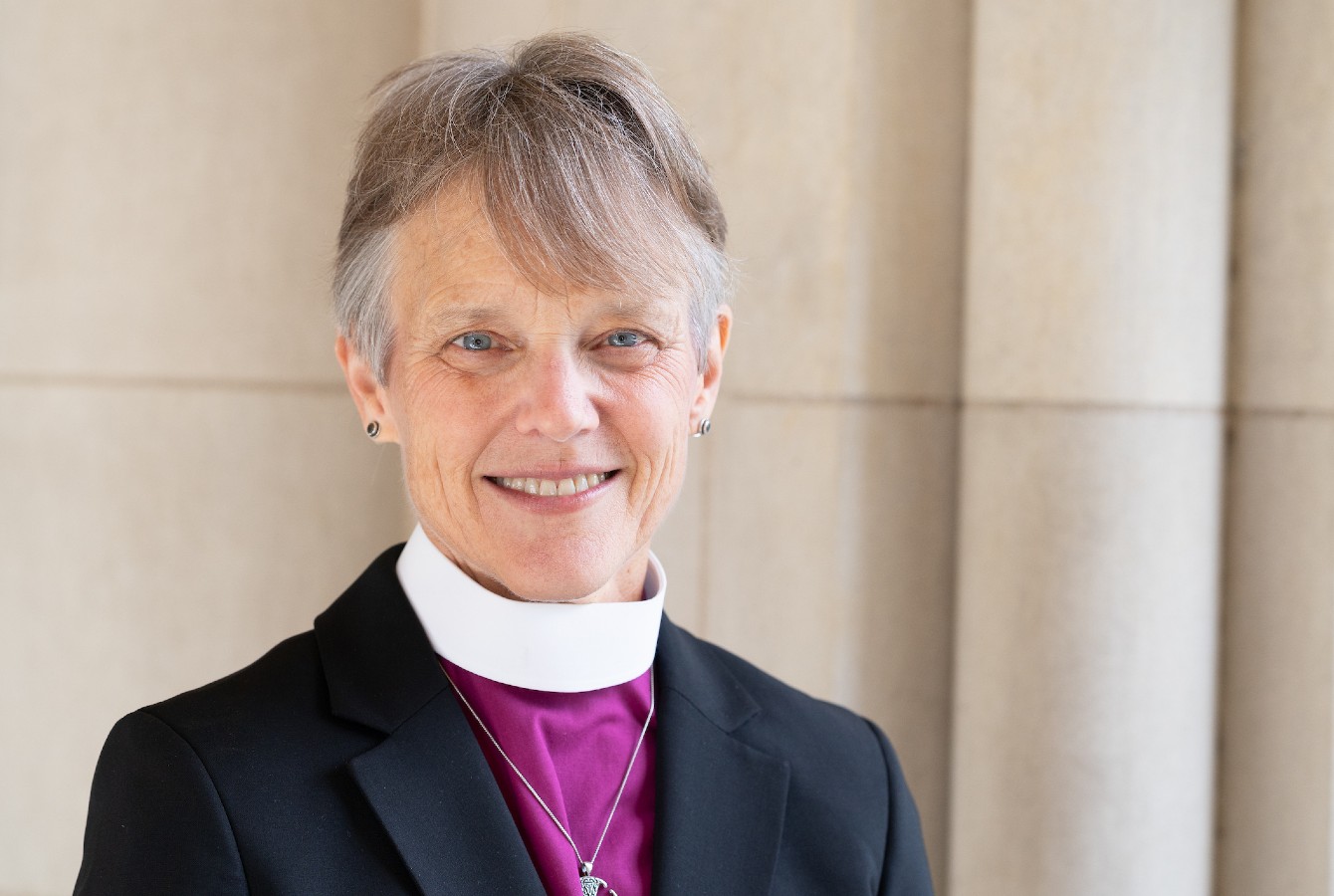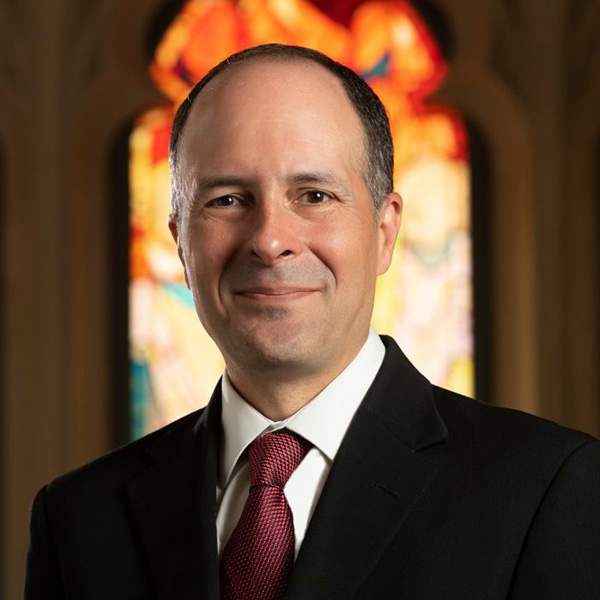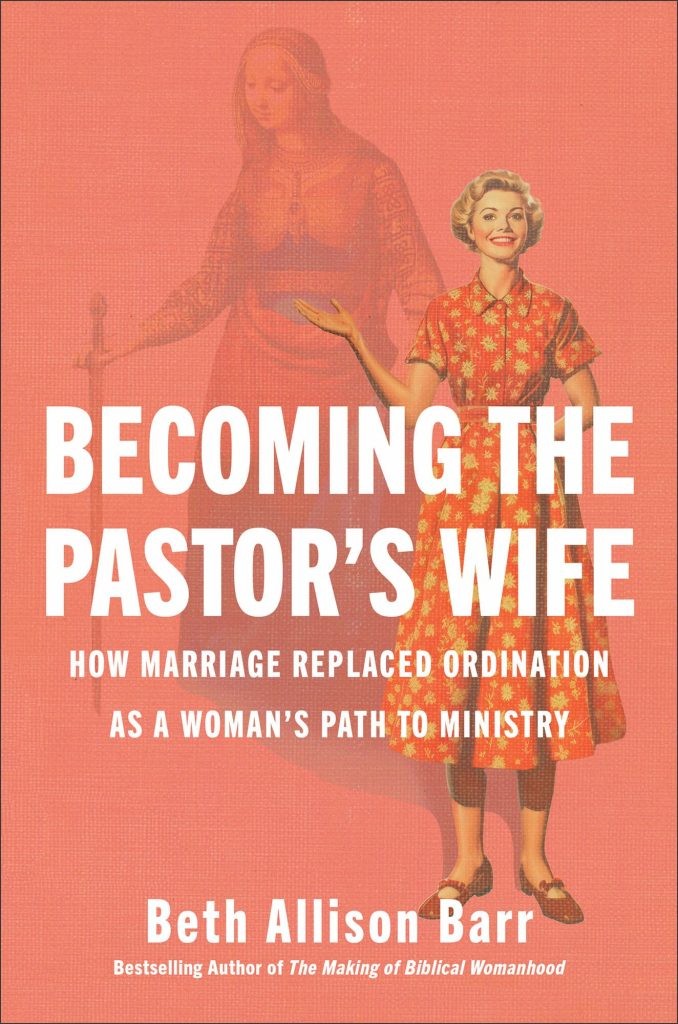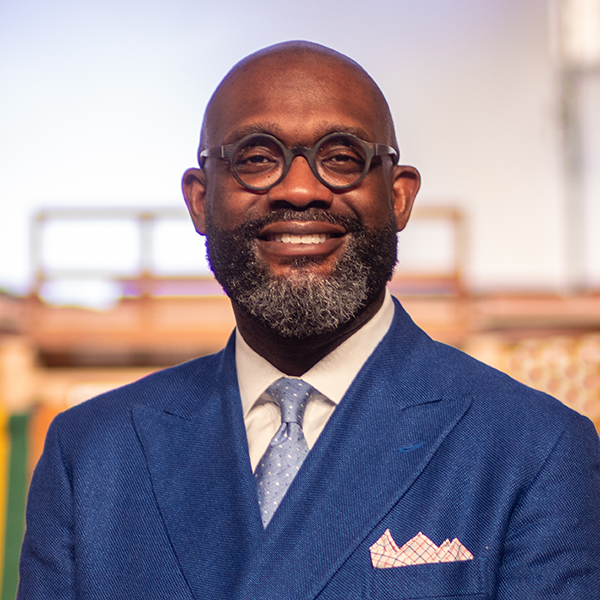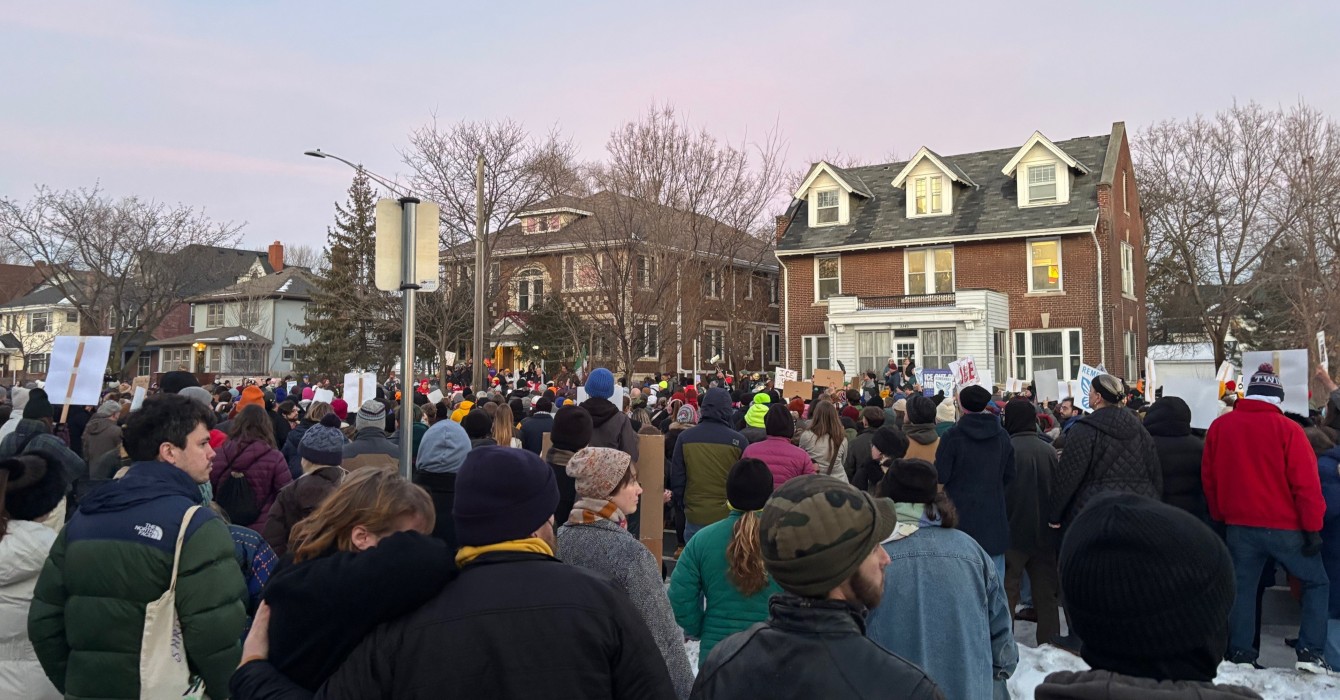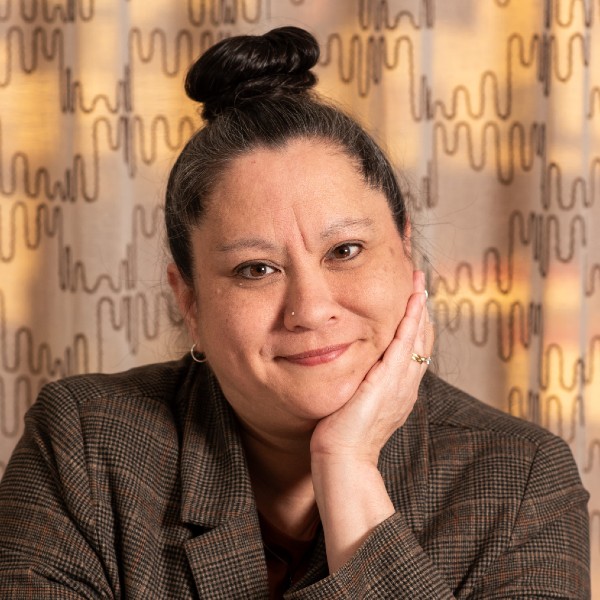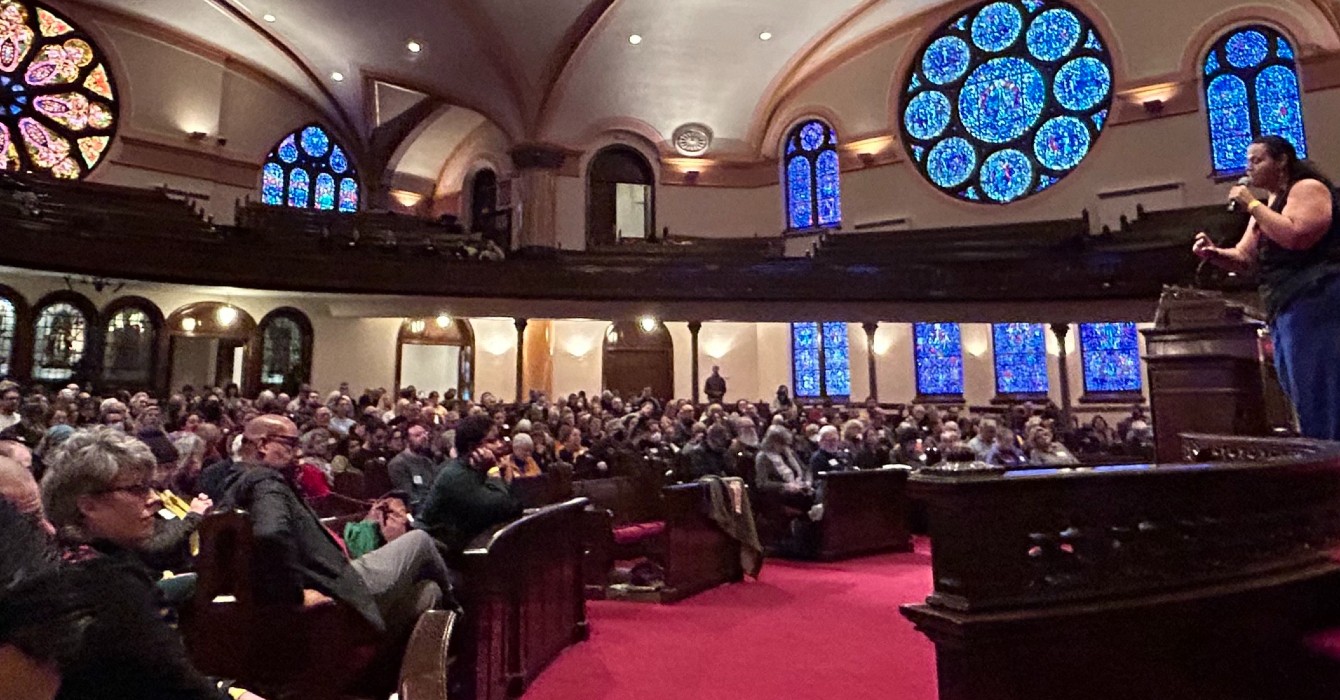At the recent national prayer service, the Rt. Rev. Mariann Edgar Budde preached about unity while also making clear that we are at a crossroads as a nation.
Unity is not mere agreement but a profound way of being with one another, encompassing and respecting differences. It calls us to love our enemies, seeking to eliminate the divisions that threaten to consume us. Such unity acknowledges that enemies are not simply individuals but symptomatic expressions of the principalities, powers and cosmic forces of darkness at work in our world.
When we surrender to the despair that often accompanies such darkness, we risk becoming instruments of injustice against God’s creation. In our frustration, we may fall into hatred, violence or exploitation, failing to see beyond the conditions that have shaped individuals. Unity reminds us that all creation is significant to God and worthy of redemption.
A crossroads, meanwhile, signifies a point of decision, a critical juncture where one must choose which path to take. Throughout biblical texts, individuals encounter crossroads that demand that they trust in God, the path toward life, or rely on their own reason, often leading to death. These pivotal moments serve as profound reminders of the consequences inherent in our choices. Today, as we face societal crossroads, the implications of our collective decisions weigh heavily on our future, particularly for the most vulnerable among us.
As we navigate the aftermath of our society’s latest decision, divisive rhetoric, polarizing politics and uncertainty about what lies ahead dominate the atmosphere. Anxieties run high, and feelings of insecurity permeate.
While some may struggle to comprehend these emotions, those in marginalized communities are acutely aware of their precarious positions. They experience a deep urgency concerning the path our nation will take at this crucial juncture.
In this context, Budde’s appeal to President Donald Trump to “have mercy” on the vulnerable embodied the prophetic tradition — speaking truth to power and calling for transformative compassion.
Writing in “Biblical Prophecy: Perspectives for Christian Theology, Discipleship and Ministry,” Ellen Davis outlines five elements of the prophetic tradition: radical concreteness of expression; demands for moral, economic and religious integrity; participation in the suffering of the vulnerable; being trusted friends of God with ministries of protest, prayer, healing and reconciliation; and bearing witness to the theological significance of those outside Israel’s worship. Budde’s appeal exemplified these principles, urging us to see all humanity and resist blindness to the conditions that afflict both the powerful and the vulnerable.
Too often, we become fixated on external struggles, overlooking the internal battles individuals face. We fail to recognize the humanity behind the suffering — the dreams, fears and aspirations obscured by circumstances. Budde’s interaction with Trump demonstrated the transformative power of seeing and being seen, of fostering relationships that hold the potential for redemption and restoration.
Walter Brueggemann describes prophetic preaching as creating an alternative vision to the dominant imagination. It uses rhetoric “to evoke, to shock, to tease, to play, to probe” what was previously unthinkable and unsayable. Prophetic preaching is not an expression of personal opinion but the Spirit’s work, sharing God’s word to guide people into covenantal relationships with God, others and creation. It draws upon the imaginative acts of society’s normative story, evoking a vision of a world not yet realized.
As the Rev. Dr. Martin Luther King Jr. wrote in his Letter From Birmingham Jail, “There comes a time when the cup of endurance runs over, and men are no longer willing to be plunged into an abyss of injustice where they experience the bleakness of corroding despair.”
That time is now. As we stand at this crossroads, the call to respond is urgent. Mercy remains elusive, as evidenced by policies that prioritize enforcement over compassion. Statements from the Trump administration, such as those from the Department of Homeland Security, reflect a commitment to authority over empathy, further marginalizing vulnerable communities.
In moments of decision, we must choose whether to speak for God or remain silent. Budde’s decision to address the president exemplifies the courage required to advocate for divine justice.
Boldness is essential in an era when lies overshadow truth. Romans 16:17 (ESV) urges us to “watch out for those who cause divisions and create obstacles contrary to the doctrine.” Prophetic messages are inherently dangerous, but their urgency surpasses the fear of threats. For those without power, threats create a semblance of control. Yet those connected to God’s power see beyond threats, pray and seek boldness to act.
At this crossroads, there is an invitation to redemption. “Have mercy,” Budde’s appeal, calls us to demonstrate God’s presence in the midst of suffering. This commitment to mercy embodies the prophetic tradition, challenging systems of oppression and advocating for justice.
The invitation to redemption requires us to reimagine our reality through the lens of prophetic imagination. It calls us to envision a world where justice reigns, where unity bridges divides, and where mercy transforms hearts. This reimagining demands courage to confront the dominant narratives of our time and create space for alternative possibilities rooted in God’s vision for creation.
As we navigate these uncertain times, the call to unity, mercy and boldness resounds. We must choose to see one another as God’s creation, worthy of love and redemption. This choice challenges us to confront systems of injustice, advocate for the vulnerable, and embody the prophetic tradition in our actions and words.
In doing so, we align ourselves with God’s vision for a reconciled and redeemed world. The crossroads we face is not just a moment of decision but an opportunity to participate in God’s transformative work. May we, like Budde, have the courage to speak truth to power, to imagine the unimaginable, and to act with boldness and mercy. For at this juncture, the call to faithful witness and prophetic action is more urgent than ever.
Budde’s interaction with Trump demonstrated the transformative power of seeing and being seen, of fostering relationships that hold the potential for redemption and restoration.


